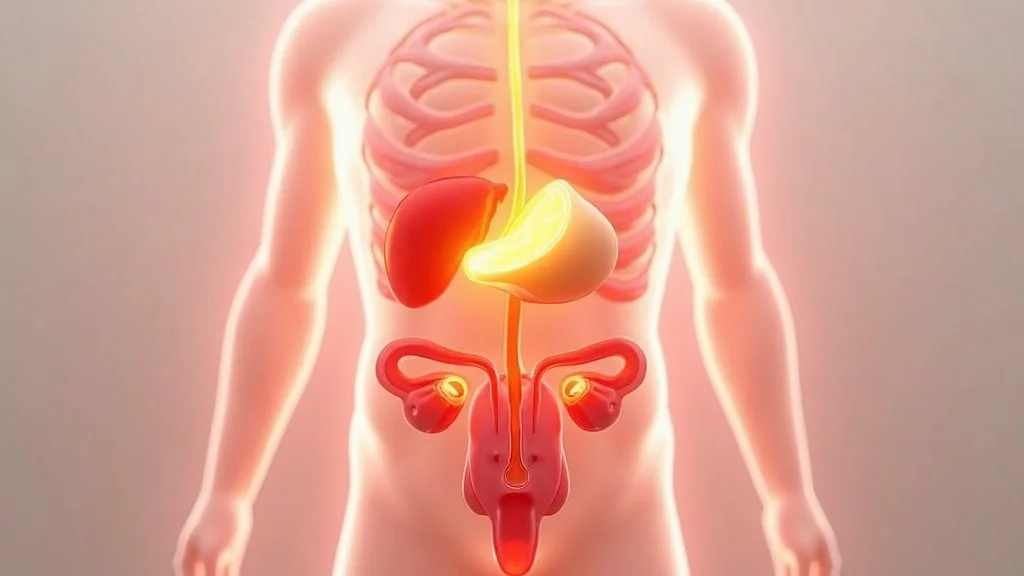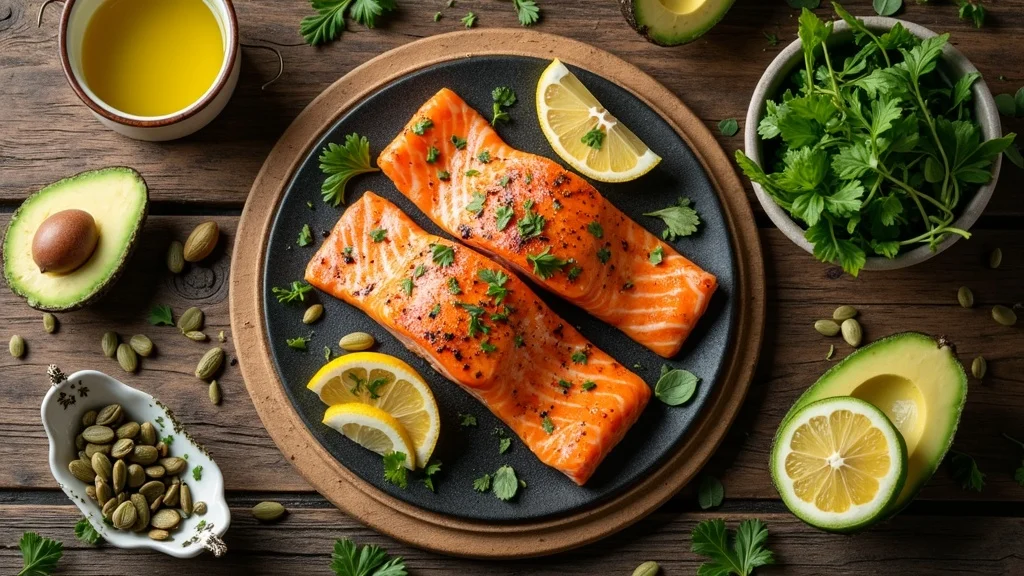Did you know: Nearly 1 in 4 adults over age 30 have lower testosterone levels than optimal — and that imbalance doesn't just affect men. Low testosterone can quietly sap energy, dampen motivation, and undermine vitality in both men and women—long before numbers ever register as “low” on a lab test. This comprehensive guide to increasing testosterone naturally reveals science-backed lifestyle changes, real food strategies, and practical tips to help you restore balance and thrive, all without dangerous pills or synthetic testosterone boosters.
Why Increase Testosterone Naturally? Understanding the Importance for Both Men and Women
When people hear “testosterone,” they often assume it’s just a men’s hormone. The reality? Testosterone is a hormone essential to both sexes, deeply impacting muscle mass, mood, bone density, sexual function, and even motivation. For men, maintain healthy testosterone levels supports consistent energy, sharp thinking, healthy metabolism, and physical confidence. For women, optimal testosterone levels aid mental clarity, libido, emotional resilience, and strong bones—risks of osteoporosis mount as levels drop, especially after menopause.
Scientific research shows that even moderate dips in testosterone can lead to subtle but significant increases in fatigue, irritability, and lower muscle tone in both sexes. This means adopting strategies to increase testosterone naturally supports full-body health and helps you live with greater vitality. Focusing on natural methods not only restores hormonal balance but also improves your overall lifestyle habits—protecting you from common pitfalls associated with synthetic testosterone boosters, like dependency and unpredictable side effects.
"Testosterone is not just about physical power — it's foundational for both men and women's overall well-being and longevity."

What You'll Learn About Increasing Testosterone Naturally
- The role of testosterone in men's and women's health
- Top lifestyle strategies to increase testosterone naturally
- Dietary habits and specific foods to support testosterone levels
- Natural alternatives versus pharmaceutical testosterone boosters
- Key signs and symptoms of low testosterone and when to seek help
Testosterone Levels: An Overview of Natural Function
How Testosterone Production Works in the Body
Testosterone production is a marvel of the endocrine system. It begins in the brain—specifically, the hypothalamus and pituitary glands. These control the release of hormones that signal the testes in men and ovaries in women to produce testosterone. A portion is also made in the adrenal glands. This process is tightly regulated to maintain healthy testosterone levels, ensuring the body gets just what it needs for muscle mass, energy, and normal sexual function. If the feedback loop between the brain and glands falters, testosterone levels can drop or spike, disrupting mood, sex drive, and overall vitality.
Both men and women depend on steady hormone levels. For men, the majority of testosterone is created in the testes and a small amount in the adrenal glands. For women, it’s mainly the ovaries and adrenal glands. Proper function keeps sex drive and mental focus sharp, and supports the body’s resilience during stress. Lifestyle, diet, and even quality of sleep all influence how efficiently these glands produce testosterone, making natural support a holistic effort.

Normal Testosterone Levels and Why They Matter
Understanding what’s “normal” helps you target your efforts to increase testosterone naturally. Average levels vary by age and sex. For men, healthy total testosterone typically ranges from 300–1,000 ng/dL, while women have a healthy range of 15–70 ng/dL. These numbers can drop with age, chronic stress, poor sleep, or excess body fat. While it’s natural for testosterone to decline gradually after age 30, low testosterone levels can affect both mood and physical strength long before lab results hit clinical “deficiency.”
Low levels may sneak up slowly—manifesting as less energy, reduced motivation, or a dip in sexual function. Both men with low testosterone and women with lower than normal production experience a decline in well-being and resilience. Monitoring your own experience, and not just blood tests, helps curb unwanted symptoms early. Optimizing hormone levels through lifestyle and nutrition supports healthy aging and helps prevent bigger problems down the line.
Factors That Influence Testosterone Levels Naturally
Several factors interact to determine natural testosterone levels. Diet—rich in healthy fats, protein, and micronutrients—supports consistent hormone production. Chronic stress raises cortisol, a hormone known to lower testosterone. Quality sleep acts as a regulatory “reset,” ensuring hormones remain balanced and consistent. Regular exercise, especially resistance training, robustly boosts testosterone production—while a sedentary lifestyle or lack of movement can significantly lower testosterone.
Body fat, especially around the belly, is another big player. Higher fat percentages turn more testosterone into estrogen, a process that can further suppress levels of testosterone. Medications, excessive alcohol use, and environmental toxins also contribute to drops. Optimizing these factors with intentional, healthy changes is the most effective, lasting way to increase testosterone naturally—no pills required.
Recognizing Low Testosterone: Signs, Symptoms, and Impacts
What are Signs of Low Testosterone in Males? (People Also Ask)
Common signs of low testosterone in men go well beyond reduced sexual drive. Fatigue, persistent lack of motivation, and decreased muscle mass become increasingly obvious over time. Men may notice difficulties building or maintaining muscle, increased body fat—especially around the waist—and a drop in both stamina and focus. Erectile dysfunction or changes in sex drive are also strong indicators that testosterone levels are below optimal, even if blood tests only show a moderate dip.
Other symptoms can include mood swings, poor sleep, irritability, and slower recovery from exercise or stress. Men with low testosterone might also develop a weaker immune response, putting them at greater risk for day-to-day illnesses. Recognizing and addressing these signs early—preferably with natural lifestyle changes—can help restore vitality before more severe symptoms or health risks develop.

How Low Testosterone Affects Women: Unique Symptoms
In women, low testosterone levels often go unnoticed or are explained away as stress or aging. Yet symptoms can be just as impactful: low energy, mild depression or irritability, decreased motivation, and loss of muscle tone. Many women also notice a loss of interest in sex, increased body fat, and slower recovery from workouts. Testosterone deficiency in women may worsen after menopause—when hormone levels shift dramatically—triggering more noticeable impacts on bone strength, mood, and overall zest for life.
Low testosterone symptoms in women may also include hair thinning, persistent sadness, and a subtle but unmistakable decline in resilience. Addressing hormonal imbalances holistically—not just with estrogen or progesterone supplements—can help women maintain healthy testosterone levels and protect well-being as they age.
Erectile Dysfunction, Sex Drive, and Testosterone
Healthy testosterone is a foundation of sexual function in both men and women. In men, erectile dysfunction, reduced sex drive, and difficulty achieving orgasm are often the first red flags that testosterone has dropped. For women, lack of desire, dryness, or less intense pleasure indicate a similar hormonal shortfall. It’s important to know that these changes aren’t just about aging—they signify deeper hormonal imbalances that affect both emotional and physical connection.
Optimizing testosterone levels naturally revives libido, confidence, and intimacy. Addressing underlying causes with better sleep, cleaner nutrition, and consistent physical activity creates a “virtuous cycle”: as hormone levels rise, desire and emotional fulfillment often increase as well. These changes boost both self-esteem and relationship satisfaction, making hormone health a pivotal part of overall wellness.
Lifestyle Tweaks: How to Increase Testosterone Naturally
The Critical Role of Quality Sleep in Boosting Testosterone
Few things have a more dramatic effect on your ability to increase testosterone naturally than sleep. Most testosterone production takes place overnight, peaking during deep, restorative sleep cycles. Falling short—either in duration or quality—results in lower testosterone production and elevated cortisol, a hormone that directly works against your efforts. In fact, chronic sleep deprivation may swiftly drop levels by as much as 15% in just one week, with further reductions if poor sleep continues.
Building healthy sleep habits is powerful: aim for 7–9 hours every night, with consistent bedtime and wake times, and minimal exposure to screens before bed. Creating a restful environment—cool, dark, and quiet—makes it easier for your brain and body to optimize hormone levels overnight. Men with low testosterone nearly always report improved energy, motivation, and even sexual function when they prioritize high-quality sleep.

Exercise: Best Routines and Resistance Training to Increase Testosterone
Consistent resistance training and physical activity are potent natural testosterone boosters. Studies show that regular, strength-focused exercise—especially compound lifts like squats, deadlifts, push-ups, and pull-ups—stimulates a surge in hormone production right after workouts and helps maintain healthy levels long-term. Aerobic exercise also assists, but strength training is uniquely effective for spurring new testosterone synthesis and supporting muscle mass in both men and women.
Aim for at least three sessions weekly, mixing full-body resistance movements with brief, intense intervals (HIIT). Active recovery, stretching, and avoiding overtraining are also essential—excessive exercise without adequate rest can actually lower testosterone. Starting simple with bodyweight moves, then integrating weights as fitness improves, allows you to see a significant increase in testosterone without risk of injury or burnout.

Stress, Cortisol, and Managing Hormonal Balance
Chronic stress dramatically suppresses testosterone production by continuously elevating cortisol. This stress hormone competes with testosterone for resources and signals your body to “downregulate” reproductive hormones in favor of short-term survival. Mindfulness practices, deep breathing, meditation, nature walks, and positive social connections are proven strategies to reduce the negative impacts of stress, stabilize mood, and restore a sense of internal balance.
Incorporating stress management into your daily routine nurtures healthy testosterone levels, rejuvenates energy, and improves sleep. Building a strong support system and making time for hobbies can transform stress from a daily drain to an occasional, manageable challenge. By keeping cortisol in check, you help maintain not only healthy hormones but a brighter, more resilient mindset and body.
Maintaining a Healthy Weight for Optimal Testosterone Levels
Body weight and hormone status are closely linked, especially for those looking to boost testosterone levels naturally. Excess body fat—particularly around the abdomen—converts testosterone into estrogen and blunts the body’s ability to make fresh hormone. Conversely, reducing fat through a balanced diet and steady activity restores the body's hormone sensitivity, allowing testosterone to rebound and stabilize.
To maintain healthy testosterone, focus on slow, sustainable fat loss—avoiding crash diets or extreme routines, which can backfire. Eating plenty of fiber-rich vegetables, lean proteins, and healthy fats keeps metabolism strong and appetite in check. Regular strength and aerobic training supports muscle maintenance while shifting the body’s hormonal environment back toward balance and vitality.
"Optimizing your lifestyle is the first — and often the most powerful — natural testosterone booster."
Eat to Increase Testosterone Naturally: Foods and Nutrition
Which Foods Boost Testosterone? (People Also Ask)
Choosing the right foods is foundational for anyone looking to increase testosterone naturally. Research shows that foods rich in healthy fats (like olive oil, avocados, and fatty fish), lean proteins, and minerals such as zinc and magnesium are especially beneficial. Top options for boosting testosterone include:
- Grilled salmon and sardines: rich in omega-3s and vitamin D.
- Pumpkin seeds: packed with zinc and magnesium for optimal testosterone production.
- Oysters: nature’s highest zinc source.
- Leafy greens: provide vital magnesium and antioxidants.
- Egg yolks: support cholesterol balance, the raw material for making hormones.
Adding these to your daily diet—while reducing processed foods and sugars—primes the body’s hormone balance for thriving, natural testosterone production. Don’t forget hydration: even mild dehydration can elevate stress hormones and blunt testosterone release.

Essential Nutrients for Testosterone Production
Three stand-out nutrients are essential to ramp up testosterone production: zinc, magnesium, and vitamin D. Zinc acts as a building block for hormone synthesis; it’s found abundantly in shellfish, red meat, and seeds. Magnesium, prevalent in leafy greens, nuts, and whole grains, not only supports testosterone but also improves sleep quality. Vitamin D controls multiple points in the hormone production chain, and studies show deficiency is closely linked to low testosterone level in both men and women.
B vitamins (found in legumes and whole grains), selenium (brazil nuts), and healthy fats further nurture natural testosterone function. Prioritizing these nutrients makes a noticeable difference in energy, mood, and muscle mass, giving your body the best shot at vibrant, sustainable hormone levels.
Which Vitamin Boosts Testosterone? (People Also Ask)
Vitamin D stands out as the vitamin most closely tied to healthy testosterone levels. Unlike most other vitamins, your body can make its own vitamin D with sunlight exposure—a process that doubles as a signal for greater testosterone synthesis. Deficiency is alarmingly common in both men and women, especially in regions with long winters or little sun. Supplementing with vitamin D3, or better, getting 15–30 minutes of sunlight several times a week, can yield a significant increase in testosterone levels.
Pairing vitamin D with a diverse diet, including omega-3 rich fish, eggs, and leafy greens, gives your body the nutrients it needs for optimal hormone balance. Always aim for a blend of food and light exposure before turning to pills, as nature’s sources offer bioavailable forms more easily absorbed by the body.

Avoiding Testosterone Killers: Habits & Substances to Limit
Substances That Lower Testosterone (Alcohol, Sugar, Toxins)
Some common, everyday habits have a clear, negative effect on your ability to increase testosterone naturally. Excessive alcohol suppresses testosterone production for hours—and chronic heavy use is a recipe for ongoing hormone suppression. High-sugar foods spike insulin and disrupt the hormonal environment, reducing the production and availability of testosterone. Environmental toxins, like phthalates in plastics and some pesticides, mimic estrogen in the body, disrupting the delicate balance needed for optimal hormone output.
Limiting or eliminating these “testosterone killers”—while filling your plate with whole foods and drinking filtered water—can make a big difference in overall well-being. Reading labels, minimizing exposure to plastics, and avoiding overly processed snacks help maintain healthy hormone levels over time.
Environmental Factors Affecting Testosterone Level
Non-dietary exposures matter, too. Surprising factors such as poor air quality, frequent use of BPA-containing plastics (found in many water bottles and food packaging), and contamination from heavy metals can all result in lower testosterone levels. Even frequent late-night exposure to blue light from screens may unintentionally disrupt natural hormone cycles.
Simple swaps—like using glass or stainless-steel containers, switching to natural cleaning products, and getting outdoors for fresh air—help reduce toxic burden. Small, daily changes add up to big results in overall hormone health, making it possible to maintain healthy testosterone levels for years to come.

The Link Between Obesity, Poor Sleep, and Low Testosterone
Obesity and poor sleep reinforce a cycle that leads to low testosterone. Excess body fat—especially around the abdomen—drives up estrogen and stifles the brain’s message to produce testosterone. At the same time, fragmented or insufficient sleep worsens this process, raising cortisol and further lowering hormone output. Studies show that losing even 10% of body weight through healthy eating and exercise can significantly increase testosterone production, with improved sleep delivering complementary effects.
Addressing these issues together—prioritizing a healthy weight and restorative sleep—breaks the downward spiral and provides a powerful springboard to lasting energy, focus, and sexual function in both men and women seeking natural testosterone support.
Testosterone Boosters vs. Natural Methods: What’s the Difference?
Are Testosterone Boosters Effective and Safe?
While the market is crowded with synthetic testosterone boosters promising fast results, the truth is more complex. Many products offer only short-term changes, temporarily increasing numbers on a lab sheet but disrupting your body's natural hormone production over time. Side effects—such as hair loss, acne, mood swings, and even fertility issues—are well documented, especially with long-term use and high doses. Many men and women who turn to these pills end up with lower testosterone than they started with once the supplement is stopped.
Natural alternatives, paired with healthy lifestyle habits, achieve not only sustainable levels of testosterone but also support full-body wellness. Before reaching for over-the-counter boosters, prioritize proven, holistic approaches for lasting vitality and resilience.
Why Natural Testosterone Boosters Work Without Pills
- No risk of synthetic hormone side effects
- Sustains the body’s own testosterone production
- Often improves overall health beyond hormone balance
Natural support methods gently encourage the body’s own feedback mechanisms, enhancing resilience to stress, improving metabolism, and supporting sexual function. They deliver safe results without dependency or withdrawal—making them the clear winner for those wanting substantial, long-term benefits without risk.
Key Supplements That Support Testosterone Levels Naturally
| Supplement | Role in Testosterone | Natural Sources | Notes |
|---|---|---|---|
| Vitamin D | Supports production | Sunlight, salmon | Monitor blood levels |
| Zinc | Cofactor in synthesis | Pumpkin seeds, red meat | Deficiency common |
| Magnesium | Regulates levels | Leafy greens, nuts | Helps with sleep too |
| Ashwagandha | May reduce cortisol | Herbal teas, capsules | Shown in small studies |
Supplementation can further enhance the benefits of lifestyle and nutrition changes. Always check with a health professional before starting new supplements, especially if you have underlying health conditions or are taking medications.
Watch an endocrinologist explain science-based natural methods to increase testosterone naturally, with real-life tips and success stories. (4–7 min)
FAQs on How to Increase Testosterone Naturally
-
How can I raise my testosterone levels fast?
Focus on three essentials: get a full night of quality sleep, do a resistance exercise session, and enjoy a meal rich in protein, healthy fats, and leafy greens. These provide a noticeable boost within days, though changes take time for lasting results. -
Which foods boost testosterone?
Going heavy on fatty fish, olive oil, avocado, eggs, pumpkin seeds, oysters, and leafy greens ensures your body receives healthy fats, zinc, and magnesium—key nutrients for high testosterone. Limit sugar and processed foods to avoid hormonal disruption. -
Which vitamin boosts testosterone?
Vitamin D—mainly from sun exposure and also from salmon and egg yolks—has the strongest impact on boosting testosterone naturally, especially when combined with zinc and magnesium-rich foods or supplements. -
What are signs of low testosterone in males?
Warning signs include persistent fatigue, lower sex drive, reduced muscle strength, and mood changes. Additional clues are difficulty concentrating, higher body fat, poor sleep, or erectile dysfunction.
Key Takeaways for Naturally Increasing Testosterone
- Both men and women need healthy testosterone levels for energy, focus, and well-being
- Optimize lifestyle, nutrition, and sleep before turning to pills or boosters
- Identify and eliminate habits that hurt testosterone production
- Natural methods work holistically and are safer for long-term health
Conclusion: Empowering Your Health by Increasing Testosterone Naturally
Prioritize lifestyle, whole foods, sleep, and mindful habits to increase testosterone naturally—and empower your journey toward energy, confidence, and lifelong wellness.
Looking for Natural Testosterone Support?
💧 Want to feel the difference absorption makes? See the supplements we recommend for maximum impact — and why liquids, nano-drops, and quantum strips work better.👉 Discover Our Top Picks →
 Add Row
Add Row  Add
Add 




Write A Comment